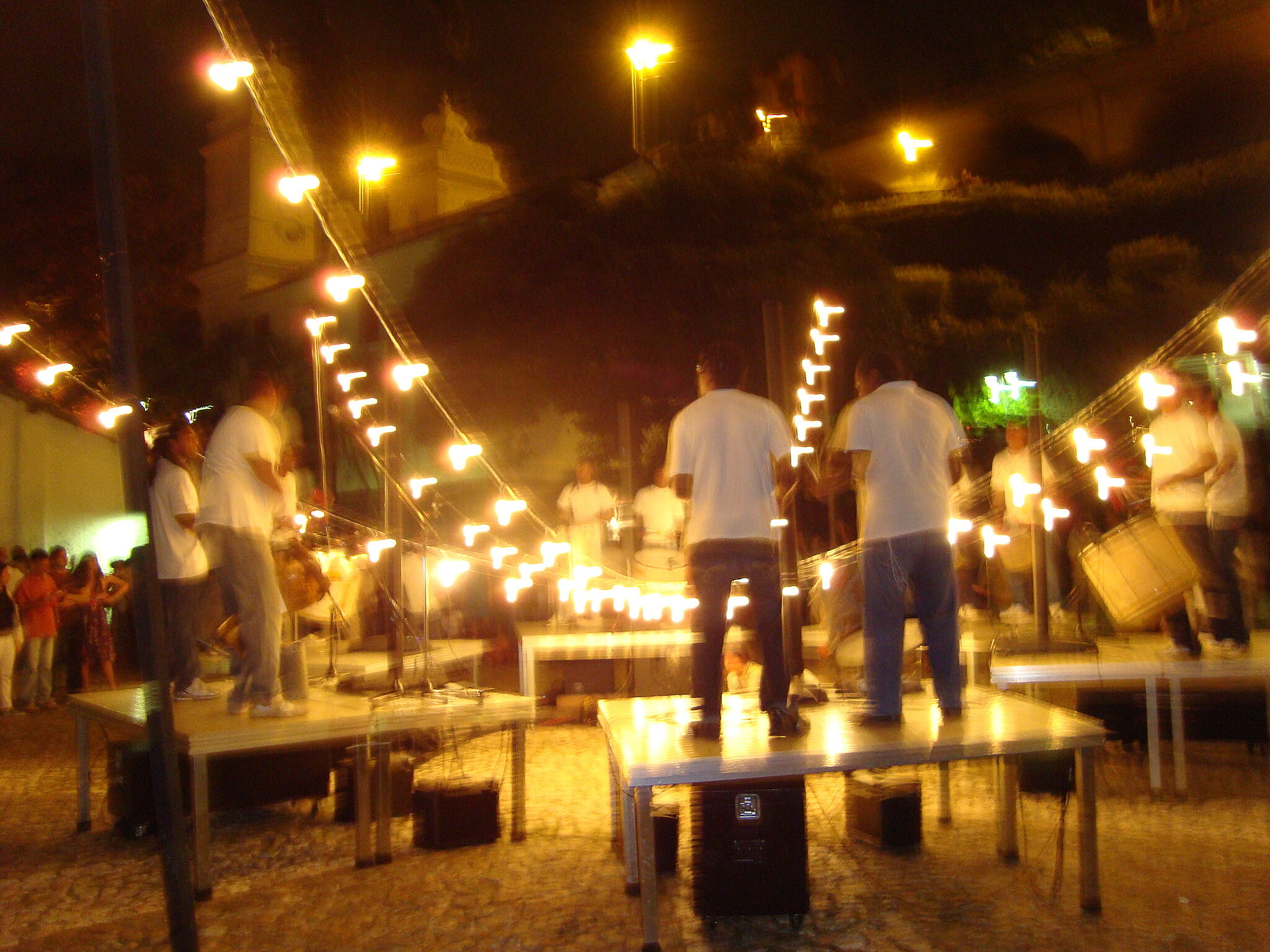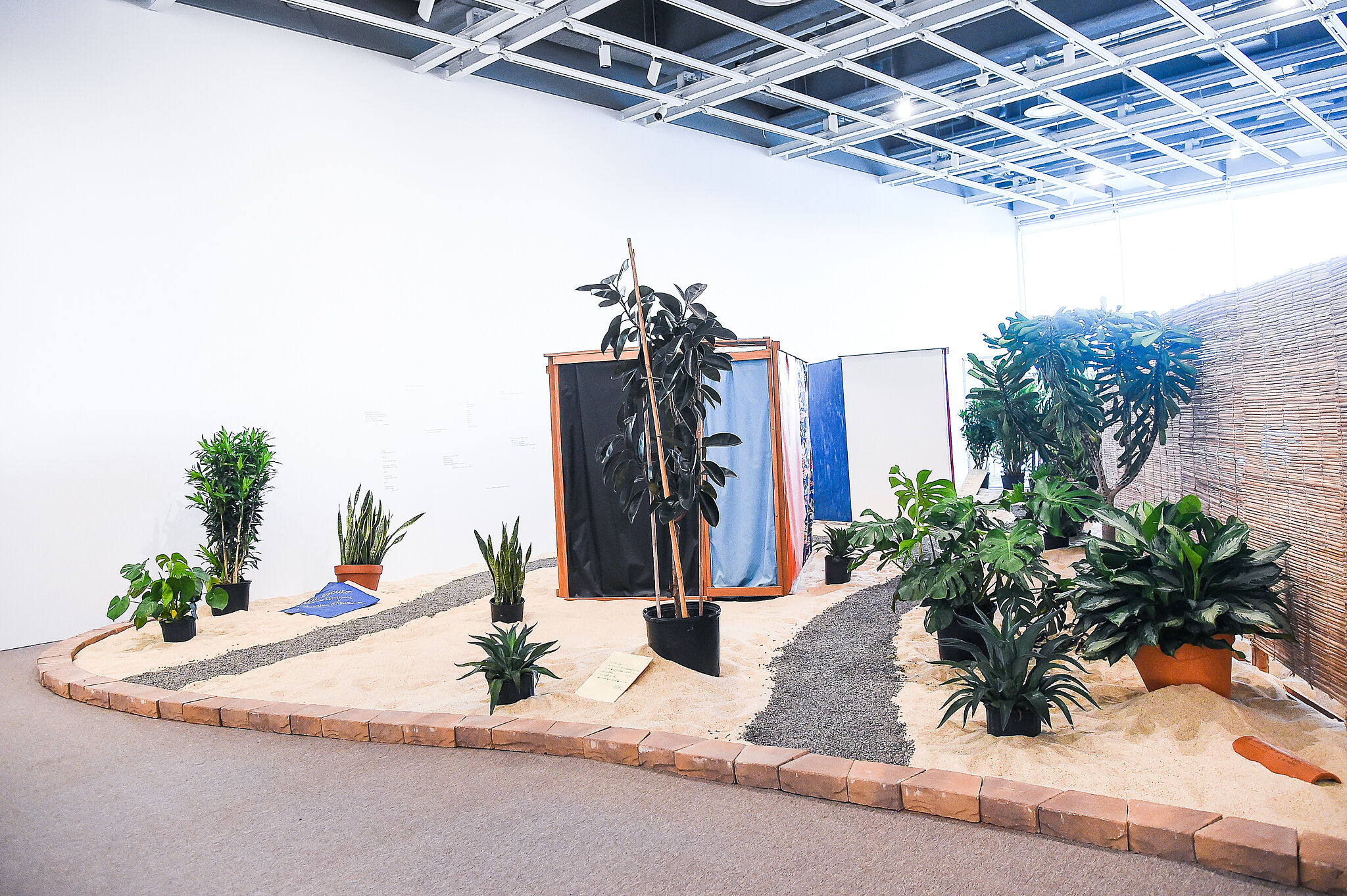MYTH ASTRAY: A project by Arto Lindsay
Sept 7–10, 2017
This event has passed.
See more events like this.
Become a member today!
Join now to enjoy early access to exhibitions and events, unlimited free admission, guest privileges, and more.
Join nowLearn more about access services and programs.
Floor Three, Susan and John Hess Family Theater
In conjunction with Hélio Oiticica: To Organize Delirum, Brazilian-American artist and experimental composer Arto Lindsay devises a series of talks, screenings, and musical performances exploring Tropicália, samba, and the Brazilian avant-garde. Lindsay maps connections between the art, music, and film that arose out of these aesthetic and political movements, which were central to Oiticica’s practice. Contributors include Barbara Browning, Júlio Bressane, Gustavo di Dalva, Christopher Dunn, and Pedro Meira Monteiro.
Full Schedule
Thursday, September 7
8 pm: Arto Lindsay in Concert
Tickets are required ($25 adults; $18 members, students and seniors). This event has reached capacity, but a limited number of standby tickets may be available on a first-come, first-served basis. The standby line will open one hour prior to the program’s start time; doors open a half an hour in advance.
Friday, September 8
3 pm: Talk by Christopher Dunn, "Beyond the Image Problem: Hélio Oiticia and Tropicalia"
4 pm: Screening of Júlio Bressane's Cuidado Madame, 1970 (70 min.)
6 pm: Talk by Pedro Meira Monteiro, "Gambiarra rocks: from the concrete to the precarious; from the individual to the collective in Hélio Oiticica"
7:30 pm: Performance by Gustavo di Dalva
8:30 pm: Talk by Barbara Browning, "Manhatã: Brazilian in New York"
Saturday, September 9
12 pm: Talk by Barbara Browning, "Manhatã: Brazilian in New York"
2 pm: Performance with Alexander Calder's Noisemakers by Arto Lindsay
3 pm: Performance with Alexander Calder's Noisemakers by Arto Lindsay
4:30 pm: Performance by Gustavo di Dalva
5 pm: Talk by Christopher Dunn, "Beyond the Image Problem: Hélio Oiticia and Tropicalia"
6 pm: Performance by Gustavo di Dalva
6:30 pm: Talk by Pedro Meira Monteiro, "Gambiarra rocks: from the concrete to the precarious; from the individual to the collective in Hélio Oiticica"
8 pm: Screening of Júlio Bressane's O Anjo Nasceu, 1969 (90 min.)
Sunday, September 10
11 am: Talk by Christopher Dunn, "Beyond the Image Problem: Hélio Oiticia and Tropicalia"
12 pm: Talk by Barbara Browning, "Manhatã: Brazilian in New York"
1 pm: Performance by Gustavo di Dalva
1:30 pm: Talk by Pedro Meira Monteiro, "Gambiarra rocks: from the concrete to the precarious; from the individual to the collective in Hélio Oiticica"
2:30 pm: Performance by Gustavo di Dalva
4 pm: Screening of Júlio Bressane's Matou A Familia E Foi Ao Cinema, 1969 (90 min)
Programs on Friday, Saturday, and Sunday are free with Museum admission. Theater installation will be open during Museum hours. Schedule is subject to change.
A representative of the Brazilian cinema marginal, Júlio Bressane began making films as an assistant director of Walter Lima Jr., in 1965. In 1969, he made two films, O Anjo Nasceu (THE ANGEL WAS BORN) and Matou A Familia E Foi Ao Cinema (KILLED THE FAMILY AND WENT TO THE MOVIES), a couple of titles that established his reputation as one of the most creative directors of his time. Together with Rogério Sganzerla, he founded Belair Filmes in 1970, a production house devoted to low-budget projects, which, over its short run, allowed them to shoot six features in as many months. After a time in exile in London, Bressane returned to Brazil, and engaged in making a continuous string of works in various formats, always characterized by a cheap craftsman’s approach to filmmaking, even when working in 35mm, indifferent of the demands of the consumer market. His most recent film is Beduino (2016).
Barbara Browning is the author of three novels, The Correspondence Artist (2011), I’m Trying to Reach You (2012), and The Gift (2017), as well as a new book in the 33 1/3 series, Caetano Veloso: A Foreign Sound (2017). She has also published an audionovel (Who Is Mr. Waxman?) and two prior academic books (Samba and Infectious Rhythm). She has a PhD in comparative literature from Yale University and teaches in the Department of Performance Studies at the Tisch School of the Arts, NYU. She’s also a poet, a dancer, and an amateur ukuleleist.
An instrumentalist from Salvador, Bahia, Brazil, Gustavo Di Dalva started playing percussion when he just was seven years old, guided by his father and teacher, Tony Mola. He studied with some of the most influential names in Bahian music including Carlinhos Brown, Vovô, and Ivan Huol. Samba, Bossa Nova, Baião and other Afro-Bahian rhythms were his influences, and he used them as starting points for incorporating Reggae, Funk, Latin Rhythms, and African Music into his current repertoire. At age fifteen, he made his major debut alongside Caetano Veloso and Gilberto Gil for the Tropicalia 2 Concert, and he went on to perform with Gil for 16 years. Di Dalva has also performed or recorded with other legends of Brazilian music, including Milton Nascimento, Gal Costa, Maria Bethânia, Djavan, Marisa Monte, Daniela Mercury, Margareth Menezes, and others. Today, besides being an percussionist, he is a singer, songwriter, producer and clinician.
Christopher Dunn received his Ph.D. in Luso-Brazilian Studies from Brown University in 1996, the same year he joined the Department of Spanish and Portuguese at Tulane University. He is Associate Professor of Brazilian Literary and Cultural Studies and holds a joint appointment with the African and African Diaspora Studies Program and is a core member of the Stone Center for Latin American Studies. His research focuses on cultural politics during the period of the dictatorship, national and regional discourse, popular music, race relations, and black culture in Brazil. He is the author of Brutality Garden: Tropicália and the Emergence of a Brazilian Counterculture (University of North Carolina Press, 2001) and Contracultura: Alternative Arts and Social Transformation in Authoritarian Brazil (University of North Carolina Press, 2016). He is co-editor with Charles Perrone of Brazilian Popular Music and Globalization (Routledge, 2001) and co-editor with Idelber Avelar of Brazilian Popular Music and Citizenship (Duke UP, 2011).
Pedro Meira Monteiro is the Arthur W. Marks ’19 Professor of Spanish and Portuguese and chair of the Department of Spanish and Portuguese at Princeton University. He teaches courses on Latin America with a special focus on literature and society in Brazil, ranging from fiction, poetry, essays and music, to politics, race and citizenship. Working in the intersection of intellectual history and literature, Meira Monteiro has combined academic production with the writing of shorter texts for cultural magazines, blogs and newspapers. He has edited, translated and authored several books, which include The Other Roots: Wandering Origins in Roots of Brazil and the Impasses of Modernity in Ibero-America (University of Notre Dame Press, 2017), Conta-gotas: Máximas & Reflexões (e-galáxia, 2016), and The First Class: Transits of Brazilian Literature Abroad (Itaú Cultural, 2014, also available in Portuguese and Spanish).


